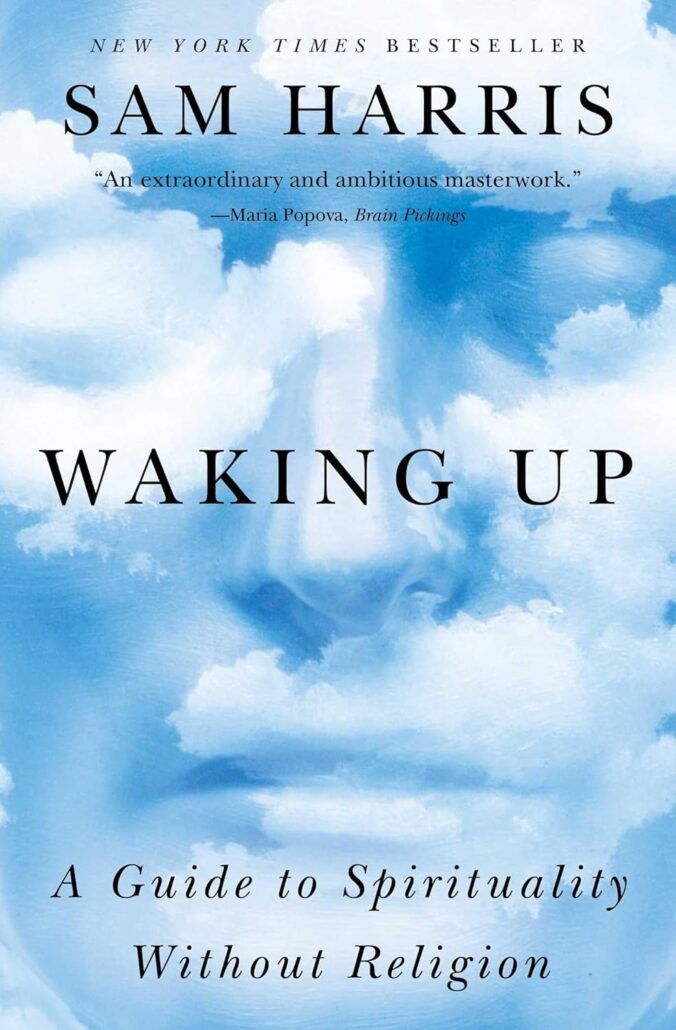How to be religious without being spiritual
Commentary by Walter Hesford | FāVS News
Wanting to learn something about mindfulness, I asked a stepson whom I know to practice it for one of his mindfulness books. He lent me “Waking Up: A Guide to Spirituality Without Religion” by Sam Harris.
Harris, a well-known atheist author, claims that true spirituality, free from the claptrap of religious myth and dogma, can only be achieved by dedicating oneself to mindfulness. This takes discipline and intelligence.
I don’t think I’m smart enough or have the will power to achieve Harris’s version of spirituality, so I thought I’d write a counter guide, one on how to be religious without being spiritual.
I know some FāVS readers will agree with Harris, and others may consider themselves both religious and spiritual, but at the risk of offending the latter I want to proclaim the value of religion, pure and simple.
When I want pure and simple, I go to a word’s roots. My American Heritage Dictionary suggests “religion” may stem from “religare,” a Latin word meaning to bind; “rely” has the same root.
So through religion we are bound to something, something we can rely on, something that sustains us. Traditionally this is something that sustains the life of our community, of our culture as well. In early cultures this often meant relying on the wisdom of the elders, the ancestors and on the natural world in which the culture was embedded. Seems to me that religions that bind us to these are still relevant.
Many early cultures had animist religions that encouraged humans to see all other creatures as relatives with rights and wisdom to share. Some were also vitalists who saw even inanimate aspects of creation such as rocks as rich in meaning they could rely on.
Henry David Thoreau, though versed in the science of his day, including the theory of evolution when it emerged, was a vitalist. While he labeled himself a Transcendentalist and scorned organized religions, as his journals testify he engaged daily in ordinary natural phenomena of all sorts with religious fervor and dedication. He held them to be true miracles. We might also.
Spirituality is of course valued in the Hebrew Bible, but the command to us is to be religious. In Torah (the Law), we are given the fundamental commandments to love God with all one’s heart and to love one’s neighbor as oneself (Deuteronomy 6:4; Leviticus 19:18). This requires religious practice and commitment.
The inspired Hebrew prophets promote putting in action this fundamental commandment as it fosters a right relationship with God and a just society: “…what does the LORD require of you but to do justice, and to love kindness, and to walk humbly with your God?” (Micah 6:8).
Christian scriptures also value spirituality, and Jesus is of course especially spiritually endowed. However, Jesus, building on the fundamental Torah commandment, calls us to the true religion of serving our neighbors. He indicates that those who will be in God’s kingdom are those who feed the hungry, give drink to the thirsty, welcome the stranger, clothe the naked, take care of the sick and visit those in prison” (Matthew 25: 34-37). One can do these without being particularly spiritual.
Sam Harris’s path to spirituality, as noted at the outset, is mindfulness. His path to mindfulness is Buddhism, which, according to Harris, “offers a truly sophisticated approach to understanding the human mind.” Since Harris views religions in general with hostility, he has to suggest that Buddhism is not one. “One can speak of Buddhism shorn of its miracles and irrational assumptions,” he writes. “The same cannot be said of Christianity or Islam.”
I cannot speak for Islam, but I can say Christianity, grounded in the teachings, life and death on cross of Jesus, has much to offer us. It may not be mindfulness, but it may be a way to live for others.
This is not to belittle either what Buddhism has to offer or the power of spirituality whether or not one is religious. It is just to affirm religious commitments and organized religions that are serving the poor and marginalized today.
The views expressed in this opinion column are those of the author. They do not necessarily reflect the views of FāVS News. FāVS News values diverse perspectives and thoughtful analysis on matters of faith and spirituality.









Delightful and thoughtful at the same time — always a great pair!
I was just drafting a column with a working title “The Practice of Disbelief” and hope my honesty can match your own from that angle.
Walter, I regularly appreciate your courage to turn things around and see what they look like that way! That’s what I try to do also, so I’m partial to you and others who flip assumptions on their heads for a different look. Thank you! I learned, or re-learned, some things about the interplay between religion and spirituality.
Your looking at root meanings is also a passion of mine. That’s how I developed my own term for “grace” over 30 years ago: “God’s radical hospitality”. I looked at “radical” and saw it basically meant “root” (not extreme as it’s usually meant today). God’s root nature is hospitality.
You mention Harris’ emphasis on mindfulness. It would be interesting to hear a conversation between him and Richard Rohr, who sees mindfulness as vital to the practice of contemplation.
Peace,
Paul
Well stated! Too much or our culture, especially here in the U.S., has eschewed religion while trying to comfort ourselves with, often, a false sense of something called spirituality. All the “benefits” without any of the work. Christianity, at its core, is about the cross, about sacrifice, and sacrifice requires work.
As a Catholic, I love that when I don’t know what to do and am feeling lost, I can engage in the rote prayers and sacraments and, almost always, I will find that “spirituality” my soul craves.